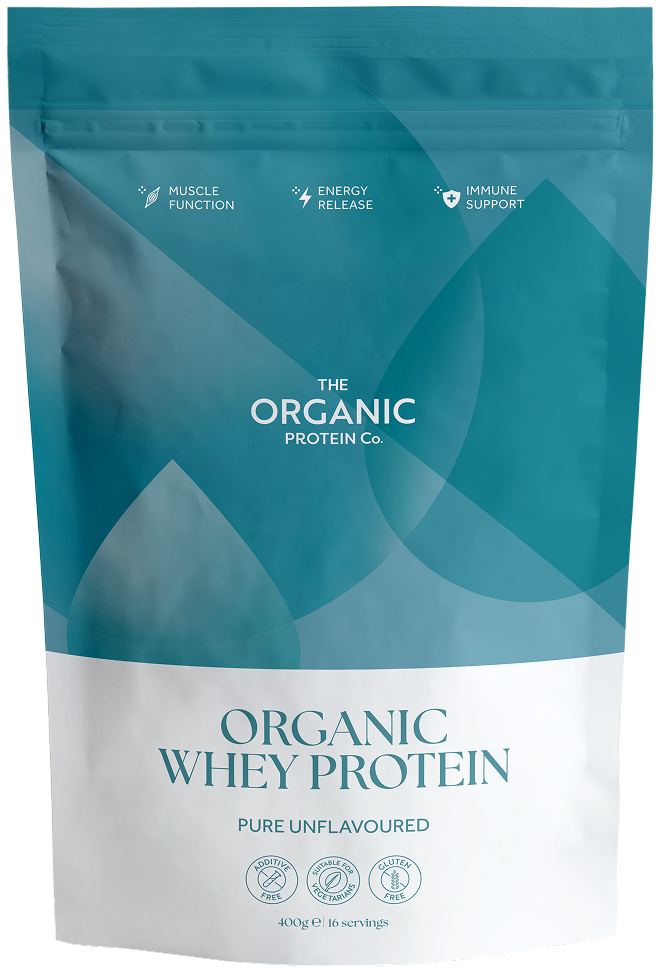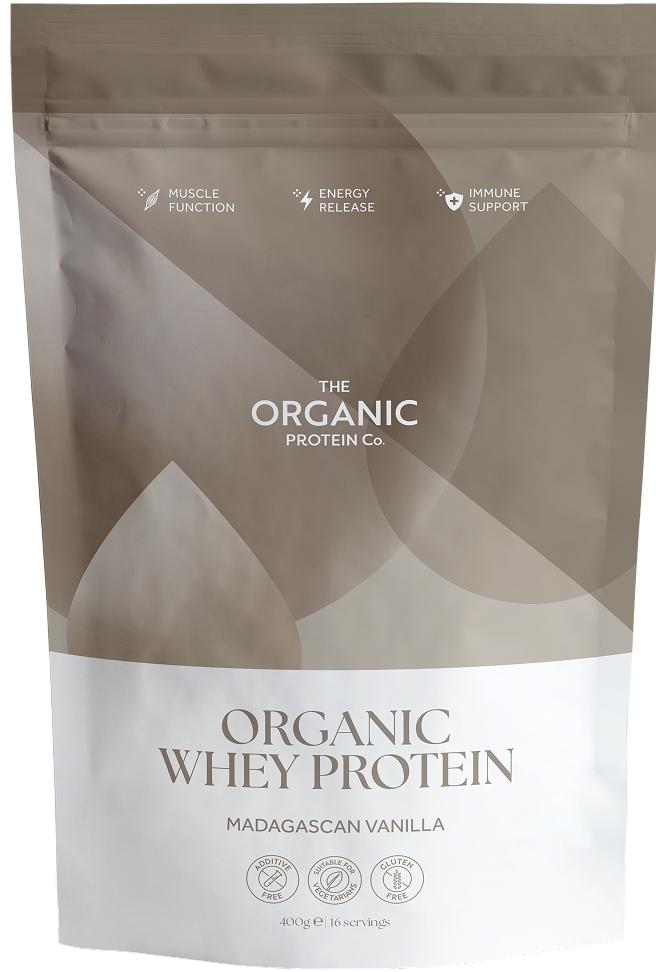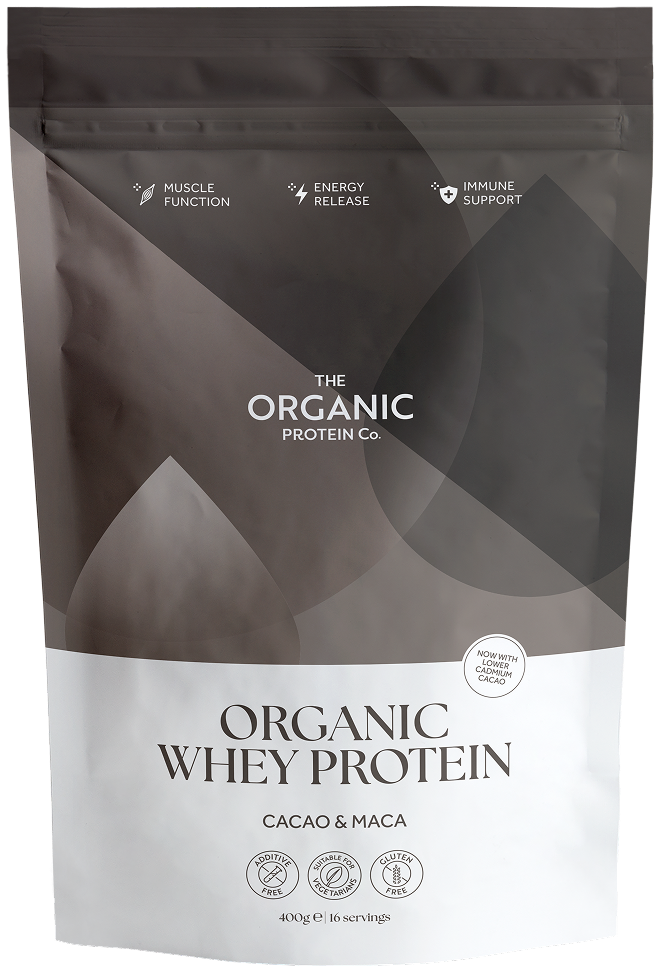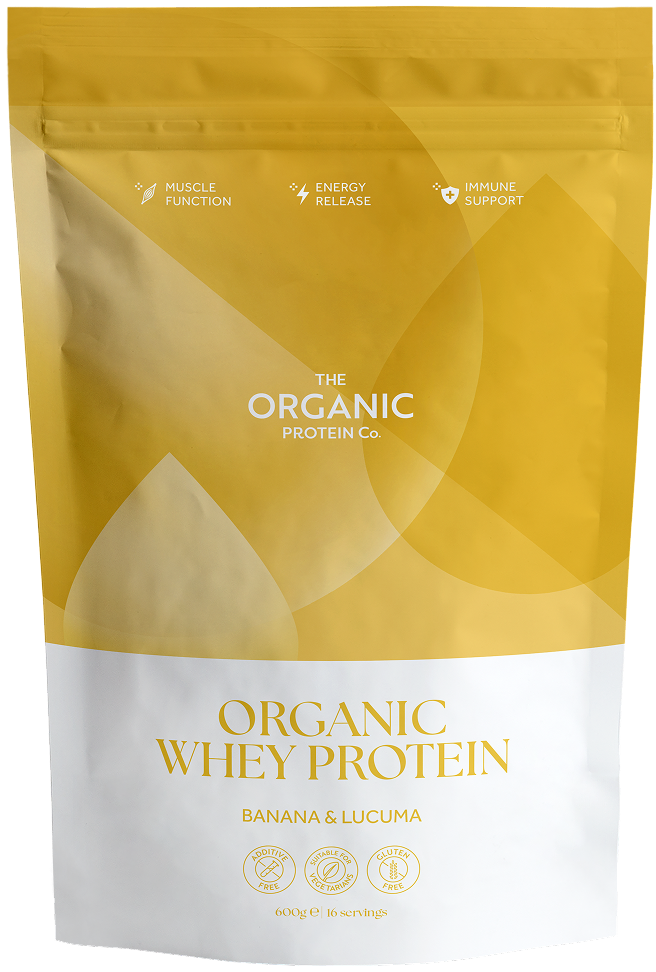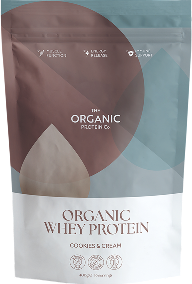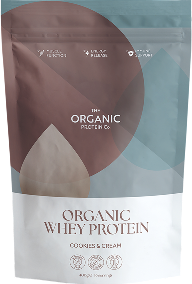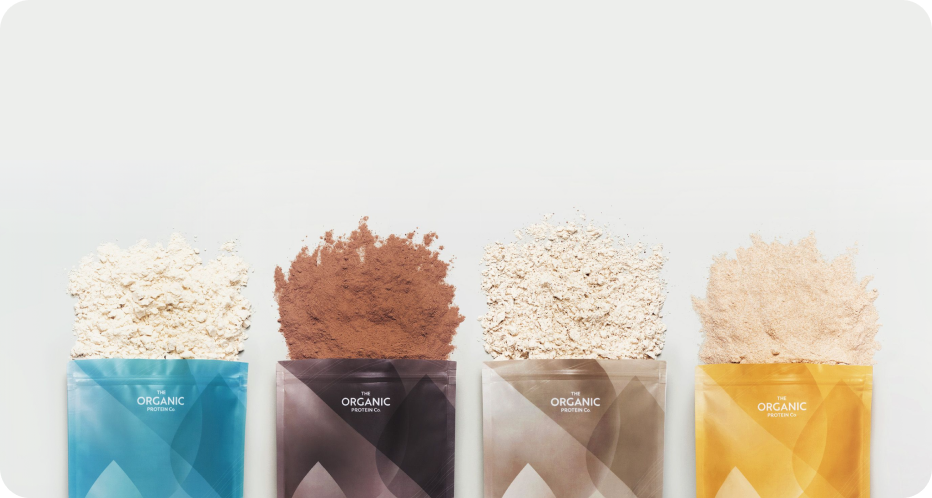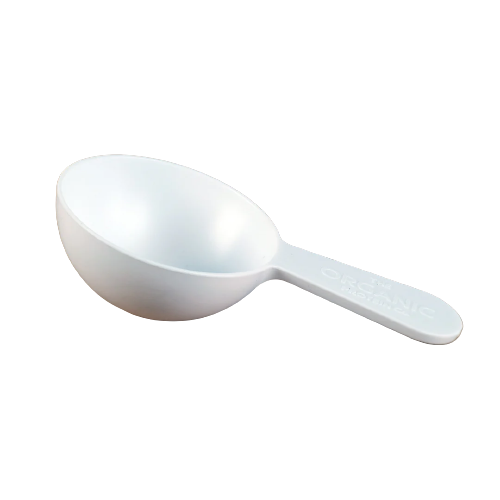There’s growing curiosity around A1 vs A2 milk, especially when it comes to how milk proteins might affect digestion. But what about whey protein? Does the type of beta-casein in the milk–A1 or A2–have any impact on the whey that’s extracted from it?
This article unpacks what A1 and A2 actually are, what role they play in whey protein, and whether there’s any meaningful difference from a scientific or nutritional perspective.
Understanding A1 and A2 Milk
Milk is made up of two primary proteins: casein (roughly 80%) and whey (about 20%). Within casein, there’s a specific type called beta-casein, which comes in different variants –most notably, A1 and A2.
The difference between A1 and A2 beta-casein comes down to a single amino acid at position 67 in the protein chain:
-
A1 beta-casein contains the amino acid histidine
-
A2 beta-casein contains the amino acid proline
This minor variation affects how the beta-casein is broken down during digestion. Some research suggests that A1 beta-casein may release a peptide called BCM-7 (beta-casomorphin-7), which has been linked in limited studies to potential digestive discomfort in some individuals (1).

But What About Whey?
Here’s where things get interesting. Whey protein is separated from casein during processing, which means it does not contain significant amounts of beta-casein, whether A1 or A2.
In other words, while the A1 vs A2 debate may be relevant for whole milk or casein-heavy products, it has limited application to whey protein.
A2 Whey Protein — Marketing or Meaningful?
Some whey protein brands now highlight that their whey is made from A2 milk. But based on current research, this distinction is likely more about marketing than material benefit –at least when it comes to whey.
The Organic Protein Company uses organic milk from cows that produce both A1 and A2 beta-casein, not exclusively A2 milk. That’s because:
- The beta-casein is mostly removed during whey processing
- The difference has no measurable effect on the final whey product
- There is no conclusive evidence that A2 whey protein is superior
Even in whole milk, the link between A1 and digestive discomfort is inconclusive and likely relevant only to a small subset of individuals.( 2, 3). Likewise, findings linking A1 to type 1 diabetes ( 4), and heart disease ( 5), remain inconclusive.

What DOES Matter?
Some of the quality markers that are useful to keep an eye out for in your whey protein include:
Organic sourcing: Organic whey protein comes from dairy cows that are not exposed to pesticides, routine antibiotics, or growth hormones, ensuring a cleaner protein source.
Grass-fed cows: Organic, grass-fed cows are also raised on natural pastures as far as the weather allows. This means the milk they produce – and the whey derived from it – contains more beneficial nutrients like omega-3 fatty acids and CLA (conjugated linoleic acid). ( 6) CLA is a fatty acid found in meat and dairy, thought to offer various health benefits. ( 7)
Gentle filtering: Choosing a whey protein that’s cold-filtered and free from artificial ingredients or unnecessary additives supports your health without exposing your body to additives or fillers.
Summary – Does A2 Milk Make Better Whey Protein?
| Feature | A1 Milk | A2 Milk |
| Beta-casein type |
Histidine at position 67 |
Proline at position 67 |
| BCM-7 production (in casein) |
Possible |
Less likely |
| Present in whey? |
No significant beta-casein |
No significant beta-casein |
| Impact on whey protein quality |
None | None |
Bottom line: the A1 vs A2 milk distinction does not affect whey protein in any nutritionally meaningful way.
FAQs
Is A2 whey protein better than A1?
There’s no scientific evidence to suggest that whey protein made from A2 milk is better than whey from A1 milk. The difference lies in the casein, not the whey.
Does whey protein contain BCM-7?
No. BCM-7 is a peptide associated with the digestion of A1 beta-casein. Whey protein contains little to no beta-casein.
Why do some brands advertise A2 whey?
It's likely a marketing decision. While A2 milk may be helpful for people with milk sensitivities, this doesn’t apply to whey protein in the same way.

